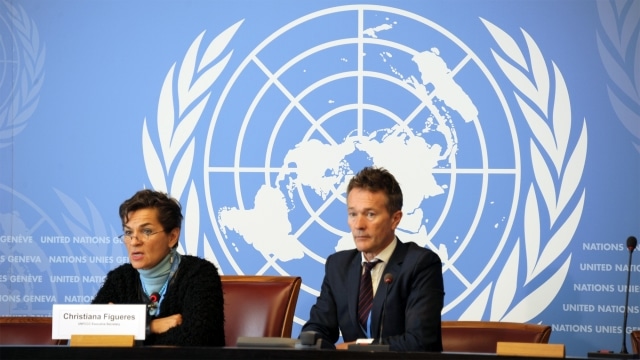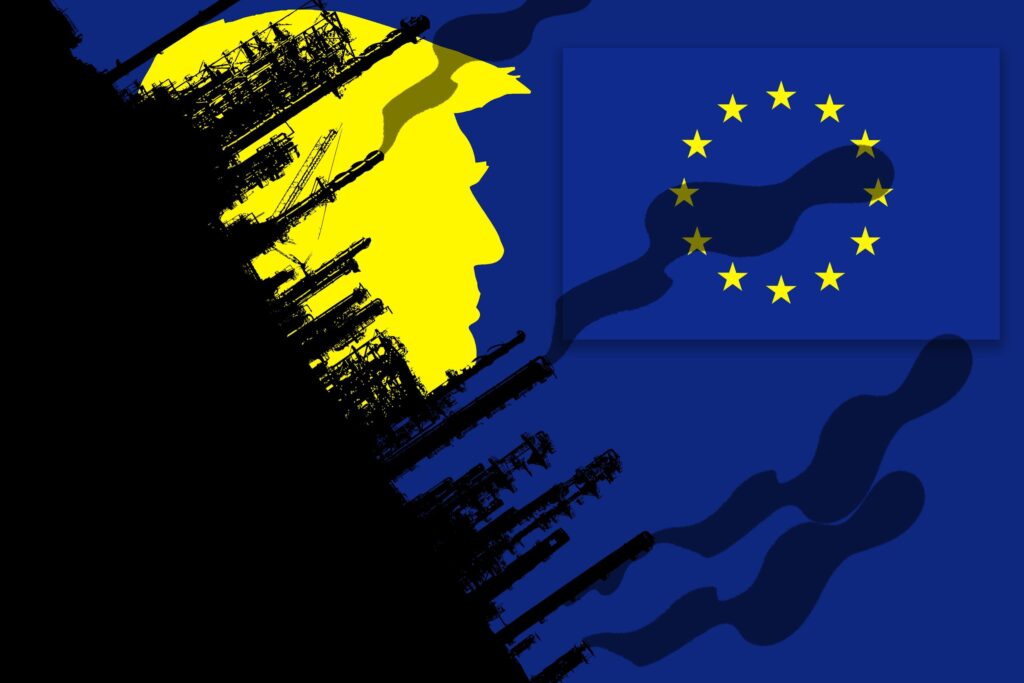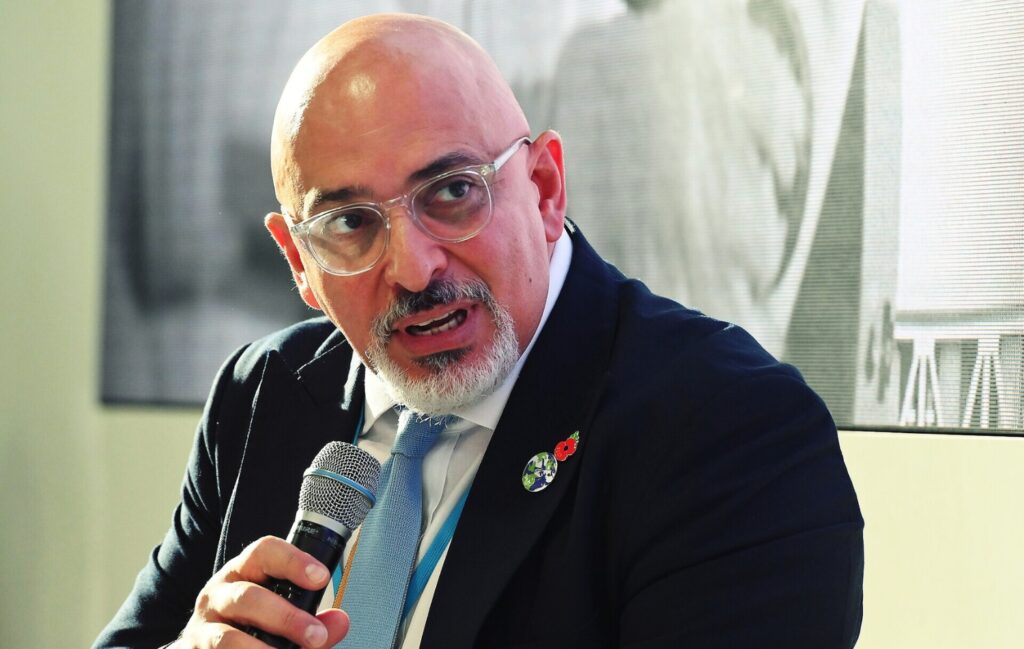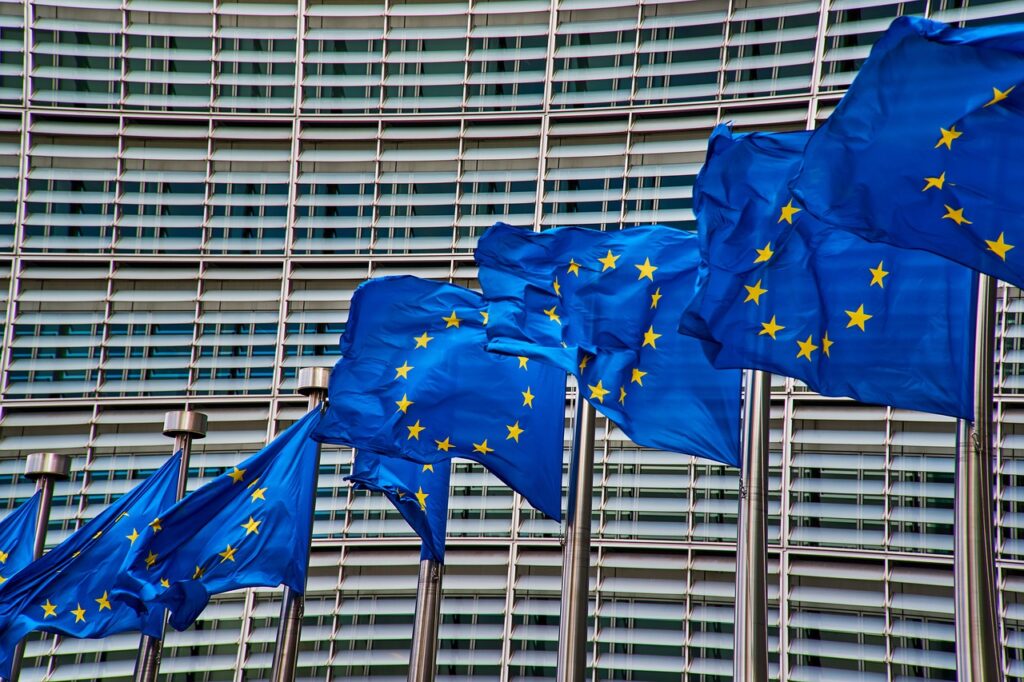“Will COP21 make a difference?” This was the question being posed by Professor Scott Barrett, leading expert on transnational and global challenges and Professor of Natural Resource Economics at Columbia University.
Speaking at the London School of Economics, Barrett asked: “Will [Paris] sow the seeds… that will lead us to do what we need to do, which is basically to transform the world’s energy system? The markets don’t want to do it on their own, which is an unprecedented challenge for the whole world. Will it do that? Or, will it do what every meeting before this has done, which is to disappoint?”
After all, it’s been 25 years and over 20 conferences. What’s changed?
To answer these questions we first have to ask what makes Paris unique to past negotiations, Barrett told the audience on September 10. He pointed to the review process likely to be implemented as the ‘new’ factor: “The idea of this is to look at each other and ask ‘are you doing enough?’… and together, is what we are pledging individually, if you add it all up, is it consistent with the goal that we set for all of us together?”
But rather than waiting around to see what happens, Barrett, and fellow researcher Astrid Dannenberg at the University of Kassel in Germany, decided to use game theory to test what kind of effect a review process will have – and ultimately, if this will help the Paris COP21 climate negotiations succeed where others have failed.
In their research, the game being simulated represented the negotiations and the players were the countries. Under game theory, this scenario represents a classic ‘prisoner’s dilemma’: each individual is isolated from the other players, all of whom are acting rationally and aware that cooperation will lead to the best outcome; however the question remains whether each player will act in the group’s best interest or in their own self-interest.
But, as Barrett points out, the game isn’t just between the countries. It’s also being played between the group and Mother Nature, and “she holds surprises for us”.
Here’s How The Experiment Went:
There were five players in each group (each of whom was isolated from the others) and each player held 20 poker chips (these represented technologies or solutions available for reducing greenhouse gas emissions). Five of these chips were worth €0.10 each and 15 were worth €1 each (representing quick fixes and more costly solutions). Contributing one chip gave each player a €0.50 return (this represents the benefit of gradually reducing climate change).
Together, players had to contribute enough chips in order to avoid catastrophe. However, because Mother Nature is a player and “holds surprises” the number of chips needed to avoid catastrophe was unknown – all that was known was that it was somewhere between 50 and 100 chips. The exact number is only revealed at the end of the game.
To eliminate catastrophe each player had to contribute all of their chips; fewer than 50 chips and catastrophe was certain – there was a penalty of €20 imposed on each player for doing this.
What were the benefits and losses? Contributing all chips gave each player a profit of €5 at the end. If each player kept all their chips, they ended up in debt by €4.50.
There were multiple stages to the game: first, the group chose a target number of chips (much like 2C of warming is chosen as the world’s climate target), then there were two rounds of pledges and contributions, and finally the wheel was spun to see what Mother Nature’s threshold was – had the contributions done enough to avoid catastrophe? Players’ earnings were then distributed based on what they contributed and the impact of Mother Nature’s threshold.
There were 10 groups of five, and each group played this several times, with a ‘review’ process injected at different stages to see when/if it had the biggest impact.
So, What Were The Findings?
Surprisingly (or unsurprisingly?) not a single one of the groups contributed all 100 chips to guarantee that catastrophe was avoided.
The target chosen, however, was always higher than the pledges, reflecting actual negotiations Barrett said. And, while the review process didn’t have a direct impact on the contributions made by each player, it had an indirect effect on the target chosen by the group. This then indirectly affected the players’ pledges, which then impacted their contributions. The higher the target, the higher the pledge and so the higher the contribution.
What did appear to have a bigger impact, in the end, was the makeup of the group itself explained Barrett. Greater belief in the group cooperating for the common good leads to higher expectations, pledges and contributions.
“So, that raises the question: do we have the right group?” Barrett said. But in reality “we’re basically stuck with the groups we have” and it’s a big group at that, with 200 countries trying to coordinate climate action.
Let’s Try Something New
Based on these findings, does Barrett expect a drastically different outcome from Paris? Not really.
“In my opinion, what we’re doing is just going around [in a circle]… we’ve been more or less trying to do the same thing for 25 years, [and expecting a different result]” Barrett said of the history of climate negotiations.
“What would be terrible, in my opinion, is if people became focused on Paris, on the review process and somehow expected this new thing was going to bring a radically different outcome to everything we tried before,” he argued. “Let’s try something new!”
Barrett proposes taking inspiration from the Montreal Protocol, which has successfully limited the production and consumption of ozone-depleting substances.
This can be extended to climate change he said by breaking up the issue into manageable chunks: “What I hope won’t happen is people say [the Montreal Protocol] is a special case, it’ll never happen again. What they should say is, from the very beginning we should’ve taken this big problem and broken it into little pieces and done each piece individually.”
However, he argues that his proposal doesn’t necessarily need to be an alternative to the Paris negotiations, it can be done in addition to what’s established at Paris.
“If Paris fails, I think the nature of this problem itself will force us to take much more extreme measures… I think in moments of desperation we should be open-minded; the world is capable of doing a lot of things.”
Photo: UN Climate Change via Flickr
Subscribe to our newsletter
Stay up to date with DeSmog news and alerts






